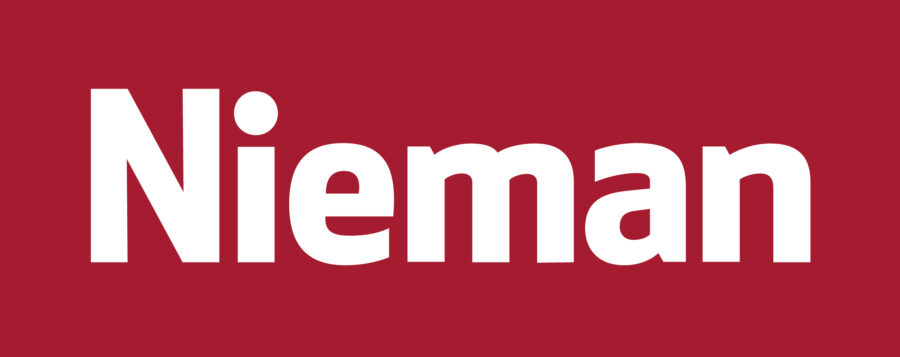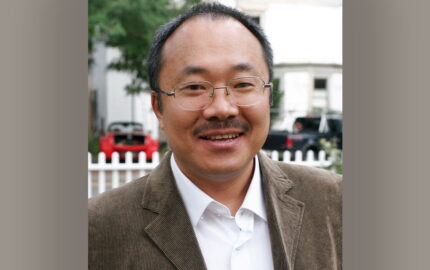CAMBRIDGE, Mass. – The current class of Nieman Fellows at Harvard University has selected Pamela Colloff, an executive editor at the Texas Monthly, as this year’s recipient of the Louis M. Lyons Award for Conscience and Integrity in Journalism. Colloff was chosen for her tenacious investigations into wrongful convictions, which have exposed deep flaws in the criminal justice system.
In their nomination, the Nieman Fellows noted that “Colloff blends painstaking reporting about the mistakes and misconduct committed by law enforcement with wrenching personal details about the shattered lives of those wrongly convicted. When many of her colleagues have moved on from the sensational murder trials, often content that justice has been served, Colloff treads a lonely road, digging through boxes of court documents, reinterviewing witnesses and questioning the motives of prosecutors and the competence of defense attorneys. Her investigations highlight how a system designed to protect can be corrupted into jailing the innocent and letting the guilty roam free, sometimes to kill again. The power and humanity of her stories has helped force reexaminations into several cases and given them an impact far beyond the borders of Texas, where they take place.”
Colloff is currently executive editor at Texas Monthly and has been writing for the magazine since 1997. Her work has also appeared in The New Yorker and has been anthologized in three editions of “Best American Crime Reporting” as well as the e-book collection, “Next Wave: America’s New Generation of Great Literary Journalists.” Her work is included in this year’s “Best American Non-Required Reading” anthology.
Colloff is a four-time National Magazine Award finalist. She was nominated in 2001 for her article on school prayer, and then again in 2011 for her two-part series, “Innocence Lost” and “Innocence Found,” about wrongly convicted death row inmate Anthony Graves. One month after the publication of “Innocence Lost,” the Burleson County district attorney’s office dropped all charges against Graves and released him from jail, where he had been awaiting retrial. Colloff’s article—an exhaustive examination of Graves’s case—was credited with helping Graves win his freedom after eighteen years behind bars. A follow-up story, planned for next month, will question why the prosecutor in the case was never punished despite his alleged misconduct.
In 2013 she was nominated twice more, for “Hannah and Andrew” and “The Innocent Man,” a two-part series about Michael Morton, a man who spent 25 years wrongfully imprisoned for the brutal murder of his wife, Christine. That story earned Colloff her first National Magazine Award. In it, Colloff forced her readers to empathize with a man as he endured the murder of his wife, the condemnation of his community and finally the painful estrangement from his young son, who grew up convinced of his father’s guilt.
As a featured author on Nieman Storyboard, Colloff has shared details about the storytelling methods she employed to write “The Innocent Man.” She also explained how she crafted “Hannah and Andrew,” her detailed narrative about a mother convicted of killing her adopted son with salt. Six weeks after the publication of the story, the woman was granted a new evidentiary hearing by the highest criminal court in Texas.
A graduate of Brown University, Colloff was raised in New York City. She currently lives in Austin with her husband and their two children.
The Louis Lyons award will be presented to Colloff at the Nieman Foundation for Journalism at Harvard on Friday, Feb. 7, 2014.
The Nieman class of 1964 established the Louis M. Lyons Award in honor of the Nieman Foundation curator who retired that year after leading the institution for a quarter of a century. Lyons was a forceful advocate for freedom of the press. While he was curator of the Nieman Foundation, he broke new ground by diversifying the class of fellows to include women, minorities, and international fellows. The award honors displays of conscience and integrity by individuals, groups or institutions in communications. The winner is chosen each year by the members of the Nieman class.
The 2014 Nieman Fellows, including 12 international and 12 U.S. journalists, selected Colloff as a representative of a small cadre of reporters questioning the functioning of a criminal justice system that many in the U.S. take for granted.
The Nieman Foundation for Journalism at Harvard educates leaders in journalism and elevates the standards of the profession through special programs that convene scholars and experts in all fields. More than 1,400 accomplished and promising journalists from 92 countries have been awarded Nieman Fellowships since 1938. The foundation’s other initiatives include Nieman Reports, a quarterly print and online magazine that explores contemporary challenges and opportunities in journalism; the Nieman Journalism Lab, a website that reports on the future of news, innovation and best practices in the digital media age; and Nieman Storyboard, a website that showcases exceptional narrative journalism and explores the future of nonfiction storytelling.
In their nomination, the Nieman Fellows noted that “Colloff blends painstaking reporting about the mistakes and misconduct committed by law enforcement with wrenching personal details about the shattered lives of those wrongly convicted. When many of her colleagues have moved on from the sensational murder trials, often content that justice has been served, Colloff treads a lonely road, digging through boxes of court documents, reinterviewing witnesses and questioning the motives of prosecutors and the competence of defense attorneys. Her investigations highlight how a system designed to protect can be corrupted into jailing the innocent and letting the guilty roam free, sometimes to kill again. The power and humanity of her stories has helped force reexaminations into several cases and given them an impact far beyond the borders of Texas, where they take place.”
Colloff is currently executive editor at Texas Monthly and has been writing for the magazine since 1997. Her work has also appeared in The New Yorker and has been anthologized in three editions of “Best American Crime Reporting” as well as the e-book collection, “Next Wave: America’s New Generation of Great Literary Journalists.” Her work is included in this year’s “Best American Non-Required Reading” anthology.
Colloff is a four-time National Magazine Award finalist. She was nominated in 2001 for her article on school prayer, and then again in 2011 for her two-part series, “Innocence Lost” and “Innocence Found,” about wrongly convicted death row inmate Anthony Graves. One month after the publication of “Innocence Lost,” the Burleson County district attorney’s office dropped all charges against Graves and released him from jail, where he had been awaiting retrial. Colloff’s article—an exhaustive examination of Graves’s case—was credited with helping Graves win his freedom after eighteen years behind bars. A follow-up story, planned for next month, will question why the prosecutor in the case was never punished despite his alleged misconduct.
In 2013 she was nominated twice more, for “Hannah and Andrew” and “The Innocent Man,” a two-part series about Michael Morton, a man who spent 25 years wrongfully imprisoned for the brutal murder of his wife, Christine. That story earned Colloff her first National Magazine Award. In it, Colloff forced her readers to empathize with a man as he endured the murder of his wife, the condemnation of his community and finally the painful estrangement from his young son, who grew up convinced of his father’s guilt.
As a featured author on Nieman Storyboard, Colloff has shared details about the storytelling methods she employed to write “The Innocent Man.” She also explained how she crafted “Hannah and Andrew,” her detailed narrative about a mother convicted of killing her adopted son with salt. Six weeks after the publication of the story, the woman was granted a new evidentiary hearing by the highest criminal court in Texas.
A graduate of Brown University, Colloff was raised in New York City. She currently lives in Austin with her husband and their two children.
The Louis Lyons award will be presented to Colloff at the Nieman Foundation for Journalism at Harvard on Friday, Feb. 7, 2014.
The Nieman class of 1964 established the Louis M. Lyons Award in honor of the Nieman Foundation curator who retired that year after leading the institution for a quarter of a century. Lyons was a forceful advocate for freedom of the press. While he was curator of the Nieman Foundation, he broke new ground by diversifying the class of fellows to include women, minorities, and international fellows. The award honors displays of conscience and integrity by individuals, groups or institutions in communications. The winner is chosen each year by the members of the Nieman class.
The 2014 Nieman Fellows, including 12 international and 12 U.S. journalists, selected Colloff as a representative of a small cadre of reporters questioning the functioning of a criminal justice system that many in the U.S. take for granted.
The Nieman Foundation for Journalism at Harvard educates leaders in journalism and elevates the standards of the profession through special programs that convene scholars and experts in all fields. More than 1,400 accomplished and promising journalists from 92 countries have been awarded Nieman Fellowships since 1938. The foundation’s other initiatives include Nieman Reports, a quarterly print and online magazine that explores contemporary challenges and opportunities in journalism; the Nieman Journalism Lab, a website that reports on the future of news, innovation and best practices in the digital media age; and Nieman Storyboard, a website that showcases exceptional narrative journalism and explores the future of nonfiction storytelling.


